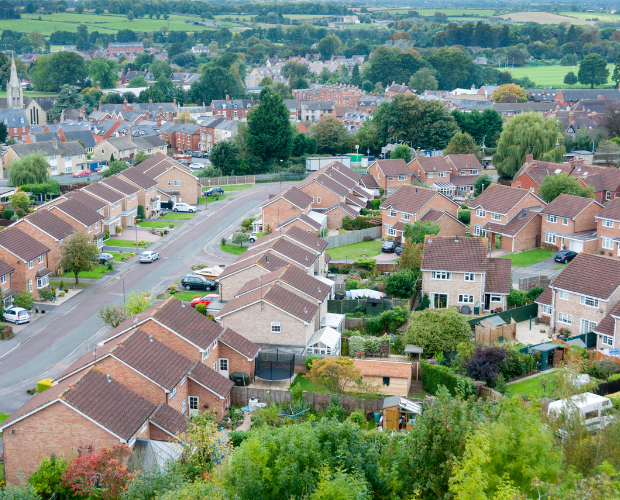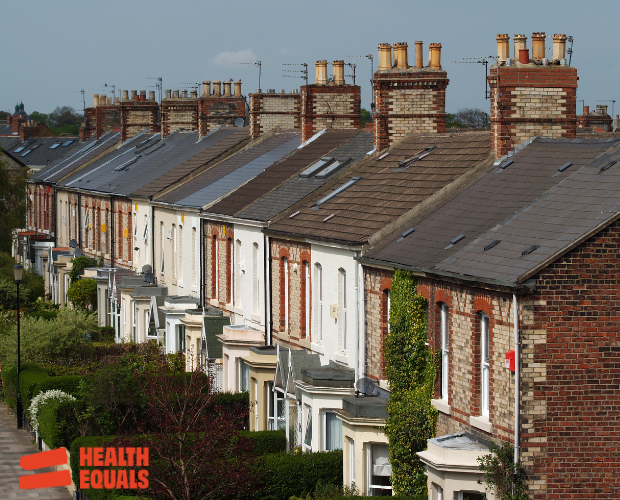T: 01822 851370 E: [email protected]
Visit RSN Survey about life in rural England to find out more.
The Government has published its new Child Poverty Strategy, setting out measures it says will lift around 550,000 children out of poverty by the end of this Parliament. The strategy outlines plans to reduce living costs for families, increase childcare...
Tens of thousands of pensioners and children will be forced through their doors this Christmas. New figures from Trussell reveal a sharp rise in the need for winter food parcels compared to five years ago. Food banks in the...
MPs met in Westminster Hall last week to debate whether current funding is adequate to support people experiencing homelessness. Opening the debate, Bob Blackman MP highlighted that homelessness is continuing to rise across England, with Crisis estimating that 300,000 individuals...
New analysis from the Local Government Association (LGA) reveals that councils in England are facing a cumulative £3 billion shortfall in temporary accommodation funding between 2017/18 and 2029/30, a gap the organisation says is pushing local government finances to breaking...
Rural connectivity featured prominently in Parliament last week, with concerns raised both during departmental Oral Answers to Questions and later at Prime Minister’s Questions. During Science, Innovation and Technology questions, MPs pressed the Minister for Digital Government and Data on...
The NHS Confederation’s State of Integrated Care Systems 2024/25: Delivering Through Change report sets out a candid picture of England’s 42 ICSs under sustained strain. It finds systems are “operating under unprecedented demand, constrained resources and uncertainty about future funding...
New digital technologies will enable more NHS patients to receive care from home, under a national rollout announced last week. Dozens of areas in England are introducing remote-monitoring tools through the NHS App, allowing patients to share updates such as...
New research commissioned by Health Equals has revealed that 15 million people in the UK live in homes with issues like damp, mould or cold. Those from low-income households, renters and the West Midlands and Yorkshire and the Humber...
The government has announced that the Women’s Health Strategy will be renewed as part of efforts to improve access to healthcare and tackle inequalities faced by women across England. Published by the Department of Health and Social Care, the renewed...
Digital tools and technologies have the potential to make access to health and care services easier and improve engagement and outcomes for patients. However, ongoing gaps in digital connectivity, skills and confidence in rural areas mean that health inequalities could...
NEWSLETTER
Sign up to receive all our latest news and updates.
HOT TOPICS
Amid reduced public spending, fair resource allocation across regions is crucial. Despite a population larger than Greater London, rural areas receive significantly less funding for essential services, even though delivering these services in rural areas is more expensive.
Economic growth is widely acknowledged as essential for national wealth and prosperity and is a priority for political parties. Rural economies, employing millions and home to a higher proportion of small businesses, have potential for growth if barriers are removed.
Rural residents face distinct healthcare challenges, including limited access to transport, longer distances to medical facilities, an aging demographic, housing inadequacies, digital connectivity gaps, and difficulties recruiting health and care workers.
Rural communities are grappling with a severe affordable housing crisis, marked by high house prices, a lack of affordable housing, elevated living costs, and lower incomes, threatening their sustainability and vitality.
Transport is vital for the quality of life and economic health of rural areas, yet it faces challenges such as infrequent public bus services and less Government funding compared to urban regions.
Rural areas, encompassing a substantial portion of England's population and land, play a pivotal role in combating climate change and achieving the net zero target.
In an increasingly digital world, the lack of robust digital infrastructure in rural areas severely limits access to crucial services and stifles economic growth.
A future-focused vision for rural communities involves not just building the right homes in the right places but also ensuring thriving, sustainable communities.
SIGN UP TO OUR NEWSLETTER
Sign up to our newsletter to receive all the latest news and updates.













